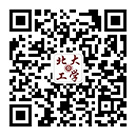题目:干细胞和人胚干细胞的进展及前景
报告人: Dr. CAO Tong
Associate Professor, Department of Oral and Maxillofacial Surgery
Faculty of Dentistry, National University of Singapore
主持人:葛子钢 特聘研究员
时间:12月29日(周一)上午9:00
地点:廖凯原楼2-401房间
报告内容摘要:
In recent years, human embryonic stem cells (hESC) have aroused tremendous interest over their potential applications in cell-based therapy and regenerative medicine. The major challenges faced in the clinical application of hESC are various safety issues, efficacy of tissue/organ regeneration and prevention of immunological rejection upon transplantation. The teratogenic potential of hESC and its epigenetic and genetic instability within in vitro culture are major safety concerns that have to be addressed prior to the commencement of human clinical trials. Other safety issues include the requirement for a xeno-free and pathogen-free in vitro culture environment for hESC. The tendency of undifferentiated hESC to undergo non-specific multi-lineage differentiation upon transplantation could reduce the efficacy of treatment. A solution may be directed differentiation of hESC into specific lineages followed by selective purification in vitro. However, a subtle balance between the terminally differentiated and undifferentiated state is probably required to achieve optimal tissue/organ regeneration i.e. intermediate transit-amplifying state. Yet another strategy to enhance transplantation efficacy would be to deliver differentiated hESC progenies on scaffolds or fabricated with novel biomaterials and technologies. The problem of immuno-compatibility can be overcome either through banking of hESC with diverse HLA genotypes, or possibly through the creation of patient-specific stem cell lines by somatic cell nuclear transfer, in what is commonly referred to as therapeutic cloning. Future therapeutic strategies in regenerative medicine would most likely combine cell transplantation/transfusion with implantation of novel biomedical materials and devices, together with the administration of pharmaceutical drugs. Hence, it is imperative to develop efficient in vitro screening assays for evaluating the biocompatibility, immuno-compatibility and pharmaceutical efficacy of the various components of such newly-developed therapeutic systems, prior to commencement of clinical trials. For this purpose, hESC lines and their differentiated progenies provide an excellent platform, because these are of single clonal origin, genetically healthy and stable, and possess unlimited proliferative capacity. Additionally, such screening assays would also have applications in biosafety-health evaluation of food products and supplements, biomedical materials and devices, cosmetics, personal care products, living and working environment i.e. water, soil, air and natural environment, and other natural and synthetic products and wastes that come into human contact directly and indirectly.
报告人简介
Professor Cao Tong is a tenured academic staff in the Department of Oral and Maxillofacial Surgery, Faculty of Dentistry at the National University of Singapore. He obtained his Ph.D. and Adv. Cert. in oral surgery and oral maxillofacial surgery at Showa University in Tokyo, Japan. His primary research interests include the somatic differentiation of human embryonic stem cells, stem cells for cell-based therapy, human embryonic stem cells for toxicological and pharmacological screening/testing, as well as tissue regeneration. He has published 85 SCI-cited journal papers and 4 book chapters. Professor Cao Tong is engaged in many professional activities such as being a member of the International Association of Dental Research, the International Association of Oral Maxillofacial Surgery, the Singapore Dental Association, the American Association of Dental Research, and the Japan Dental Association.
欢迎广大老师和员工参加!
联系人:葛子钢,010- 62756736









